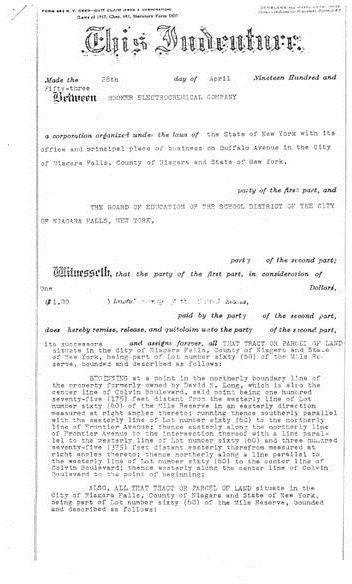Guidelines for a Real Estate Title Search and Document Verification
Verify with Local Public Offices
Verifying a property and its title is an essential step in the home-buying process. It’s like doing a background check, not only about the title and who really owns it, but also as a matter of ascertaining the existence of other factors that may affect future ownership of the property.
Real estate experts say that it’s advisable to fact check certain information by examining the public documents found in city or county courthouses, tax assessor’s offices, registry of deeds and so forth. Public records at local county or city offices provide the most accurate and reliable data as your own resources, since these are also the data used for tax assessments in the locality.
Although it’s a tedious task, it’s better than finding out later that there are certain issues that could affect the property ownership. Still, the search method depends on how the public office maintains their files; hence, it may be necessary to check other documents aside from the certificate of title.
Find out what is included in a real estate title search by studying the following guidelines:
Check the History of the Property and Its Present Owner

Establish the property owner’s identity or verify the current owner’s rights to sell the property. A detailed real property title search to verify ownership involves tracing back the history of all transfers related to the property. The objective is to ensure that there was full and proper transfer of ownership from each previous owner to the next. The search process includes looking into the different kinds of deeds, which link the property title to other real estate transactions. Examples of these deeds are:
- Grant Deeds
- Warranty Deeds
- Quit Claim Deeds
- Tax Deeds
- Gift Deeds
- Deeds in Lieu of Foreclosure
This is just to name a few since you have to keep in mind that different states have different laws, and the deeds mentioned here are only the most common.
To check the propriety of title transfers between property owners, examine the Grant Deeds and Warranty Deeds documents to support the formal transfer of titles from one owner to the next. Grant Deeds are similar to Warranty Deeds, and any one of these two may be in the file maintained by the public document office you are using.
Check out the right of ownership over properties owned by married couples, and determine if both spouses still have enforceable rights over the real estate.
-
Divorces, or estrangement, can affect a legal partner’s right to sell the real estate as a property co-owner.
-
Check the name of the seller and the spouse indicated in the title among the public records for Quit Claim Deeds. You need to do this if the method to search property title is according to Deed Indexes.
-
Verify that a Quit Claim Deed was issued by the spouse who relinquished his or her right of ownership. This document supports the seller’s full ownership of the property.
-
Ownership issues can still crop up if the married couple was not formally divorced as this could denote that no formal relinquishment was made. In such cases, the buyer can either ask both persons to sign the Deed of Sale, or ask for a Quit Claim Deed that is duly executed by the estranged spouse.
-
There are some instances where the property may have been owned by one of the spouses prior to the marriage and subsequent separation. There are buyers who want to make sure that no future claims are made against their ownership of the real estate; hence, they may require that a Quit Claim Deed be issued in favor of the selling ex-spouse.
-
In some cases, parents or grandparents transfer ownership to a descendant or descendants to avoid possible disputes after their death and in the absence of a last will and testament.
-
Other reasons may be due to old age and inability to enter into contracts related to the property; thus, the need to transfer the older person’s rights of ownership over a property to a younger or more competent member via a Quit Claim Deed.
Make sure that the property was not transferred to another owner in the form of a “Love Gift” This transaction refers to the transfer of ownership rights over the property without any exchange of money. This is usually true if the named individuals are in one way or another related to each other. The document you need to check is the Gift Deeds wherein the main reason and element of ownership transfer is described as “love and consideration”.
Verify the existence or non-existence of encumbrances resulting from unpaid or delinquent tax payment. Check to see if there are any existing Tax Deeds, which may have been issued by the seller to satisfy delinquent tax payments. Said deed supports the transfer of the property to a buyer who offered to pay the unpaid or delinquent taxes in exchange for ownership of the property when it was offered for sale at an auction as part of tax delinquency proceedings.
_Determine that the property has no existing mortgage encumbrances. O_rdinarily, a certificate of title contains annotations of all the mortgage deeds naming the property as collateral. You can double-check this if you search the property title according to Deeds of Real Estate Mortgages at the public records office. Another type of ownership conveyance related to mortgage deeds are the Deeds-in-lieu of Foreclosure, which are used by borrowers for negotiating defaulted mortgage loan payments with their lenders.
Know the existence of other related deeds linked to the seller’s identity. There are several more deeds that can be found in public documents offices of cities, counties or other public offices. It’s best to seek assistance from a knowledgeable public servant working in the local or state offices. That way, it is easier to discern if there are other deeds that could affect the seller’s right of ownership before one decides on a property. Such documents include deeds that were executed as a result of court case proceedings or lawsuits filed against the seller.
Comparable Sales Values of the Property
Determining the comparable sales values of the property on which to base the price amount to be negotiated with the seller is another important aspect of a real property title search. The process involves looking into data about the most recent sales of real estate properties in the area that are similar to the home you’re interested in. The matter of similarities would include, but are not limited to, the following:
-
The same lot size and area size (square footage) of the house constructed on the land
-
Comparable as to the number of bathrooms and bedrooms as well as the availability of garage space
-
The type of construction materials used
-
The structure of the improvement if it is a single-level home or has two or more stories.
If you’re assisted by a broker or a real estate agent, comparing sales values is part of their brokerage system. They have access to the Multiple Listing Service (MLS), which is a list of all houses for sale in different areas and is maintained as a computerized resource for accredited real estate professionals.
However, there are certain setbacks you might encounter in some public records offices, wherein the information available may lag six to eight weeks. Some homeowners might have excluded information about built-in additions to the property due to failure of declarations by owners or real estate agents. Such failures have a direct effect on tax assessments; hence, you will also have to verify if any addition on the property you intend to buy was properly declared or that there are no pending tax issues against the homeowner.
After Repair Values (ARV)

Real estate investors who buy foreclosed homes in poor condition decide on the investment value of the property based not only on the purchase cost but also on its “After-Repair-Value”. They consult a general contractor who estimates the time, labor and material costs of any repairs and then determine the profitability of the property as an investment.
Include this as part of your real estate property search if the home you’re considering is in poor condition. Others hire a licensed reputable home inspector to determine the actual condition of the house so they can estimate the amount of repairs needed. This information could also be useful as leverage to counter the selling price of the homeowner or of the foreclosing bank.
Check Data for Relocation Costs

Some of the things homeowners fail to consider when buying a property in a new location are relocation costs. It’s best to evaluate the changes in transportation expenses related to families’ important destinations like workplace and school.
This aspect presents either advantages or disadvantages regarding relocation. Moving to another state entails contending with different tax rates, interest rates and insurance costs. The latter are dependent on the location’s proneness to natural calamities as well as statistics regarding incidences of car thefts and accidents.
Other factors are the costs and availability of health care, utilities, groceries and any homeowner’s association fees. Keep in mind that different states have different laws and regulations, which influence the cost of living in an area or location. Consider all these when performing a comprehensive real estate title search as it will provide the basis for making the best home-buying decision.
References
- Image:"Bicycle storage on a Sounder train. This is the trip to Tacoma. " by Oran Viriyincy under CCA-SA 2.0 Generic
- Image :Cayuga County Courthouse and Clerk’s Office, Auburn, New York by Doug Kerr under CCA-SA 2.0
- Image: Carpenters repair a door arp by Adrian Pingstone under public domain
- Why Do A Land Title Search (Abstract) – http://www.hiscovenantministries.org/mans_law/land_patent.htm
- Grant Deed: Transfering Property – http://www.realestatelawyers.com/resources/real-estate/deeds-and-trusts/grant-deed.htm
- Image:A copy of the original quit-claim deed where Hooker Electrochemical Company sold the Love Canal land to The Board of Education of the School District of the City of Niagara Falls, New York by Denblanx under CCO-1.0
